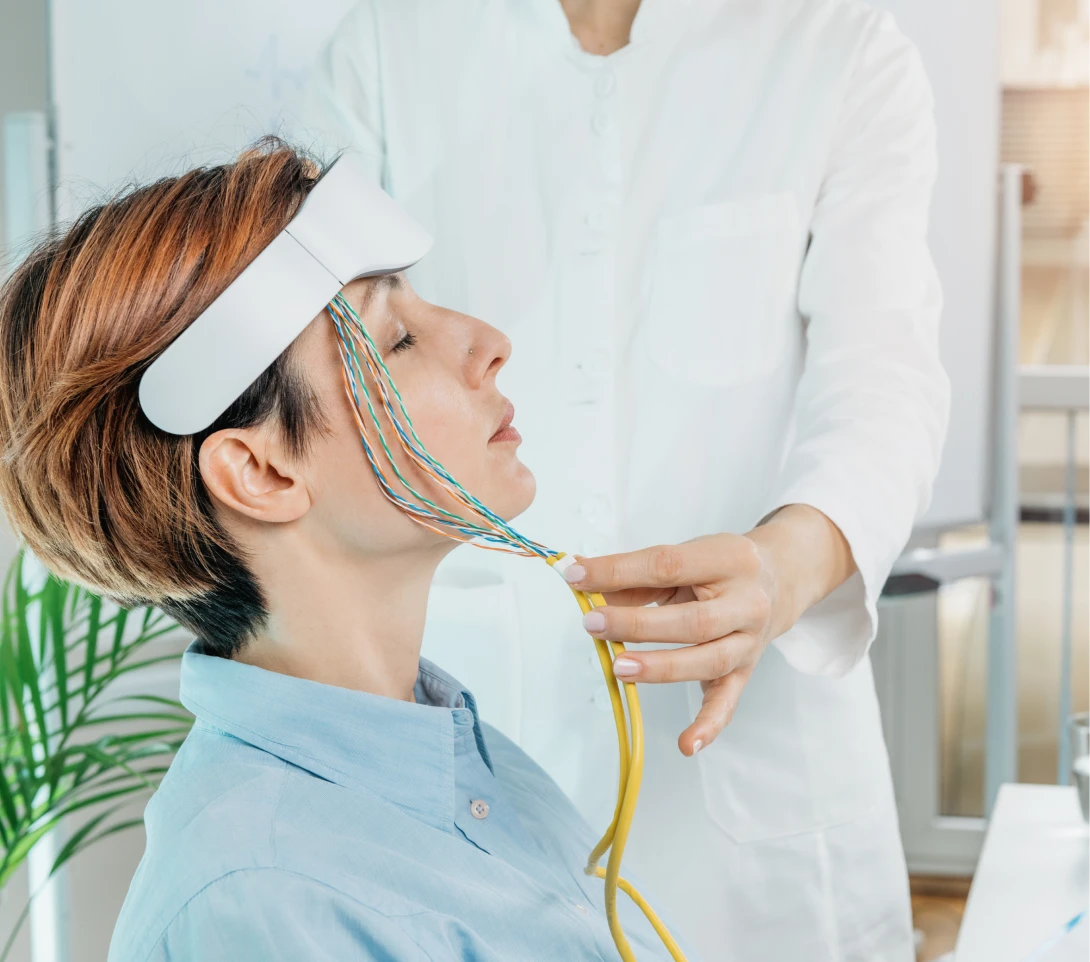What is the NeuroScreen?
NeuroScreen is a screening tool designed to detect subtle early signs of neurodegenerative diseases and assess familial risk factors. Early detection allows for timely intervention, and awareness of potential risks can lead to preventive strategies that safeguard brain function and long-term well-being.
The Power of Early Detection
At Sanctura, our NeuroScreen tool allows patients to understand their neurological health at the deepest level. By identifying early signs of neurodegenerative diseases and understanding risk factors, patients can make informed decisions about their health, implement preventive strategies, and seek interventions at the earliest possible stage.
We combine the latest medical technology with in-depth health assessments to empower individuals to take control of their neurological health.

 Neuro Risk Questionnaire
Neuro Risk Questionnaire

Familial history of diseases such as Alzheimer's, Parkinson's, and multiple sclerosis.

Lifestyle factors such as diet, exercise, smoking, alcohol use, and exposure to toxins.

Other associated health conditions, including diabetes, hypertension, cardiovascular disease, and chronic infections.

Neurocognitive performance metrics to evaluate memory, problem-solving, and motor coordination.
 Hereditary Gene Panel
Hereditary Gene Panel
Using advanced genomic technologies, our Neuro-Hereditary Gene Panel tests for mutations and variations in genes that predispose individuals to:

Alzheimer's disease

Vascular dementia

Parkinson's disease

Multiple sclerosis (MS)

Other hereditary neurodegenerative conditions
 Advanced MRI Screening
Advanced MRI Screening

Blood flow and microvasculature of the brain to detect any issues in circulation.

Early neurological lesions and atrophy associated with conditions like Alzheimer's and Parkinson’s.

Reduction in myelin sheaths, which can signify the early stages of multiple sclerosis.

Hyperperfused areas or regions with abnormal blood supply, indicative of neurodegenerative changes or inflammatory processes.

Post-COVID neurological conditions and autoimmune triggers that can impact the brain.
 Blood Work & Immune Profile
Blood Work & Immune Profile
This includes:

Inflammatory markers that may signal underlying conditions affecting the brain, nerves, or blood vessels.

Immune profile to detect imbalances that predispose individuals to autoimmune diseases or chronic infections.

Screening for micronutrient deficiencies essential for nerve and vascular health, such as zinc, selenium, magnesium, and iron saturation.

Methylation cofactors like B vitamins, folic acid, and homocysteine to support brain synapse and vascular health.

Cholesterol levels and endocrine function, with a focus on thyroid hormones, testosterone, and oestrogen.
 Neurofeedback Analysis
Neurofeedback Analysis
This is particularly helpful for:

Traumatic brain injuries that have caused cognitive impairment or axonal shifts.

Stress-induced glutamate excitotoxicity, where prolonged stress damages neurons.

Sluggish brainwave activity, indicating cognitive decline or underperformance in certain brain regions.
 Specialised Tests: DAT Scan, Functional MRI, and Peripheral Nerve Studies
Specialised Tests: DAT Scan, Functional MRI, and Peripheral Nerve Studies
These tests include:

DAT scans, which evaluate dopamine activity in the brain and help diagnose Parkinson’s disease.

Functional MRI (fMRI) to assess brain activity in real time, providing a deeper understanding of brain function and potential areas of concern.

Peripheral nerve studies are used to identify nerve damage that may contribute to cognitive or motor impairments.
